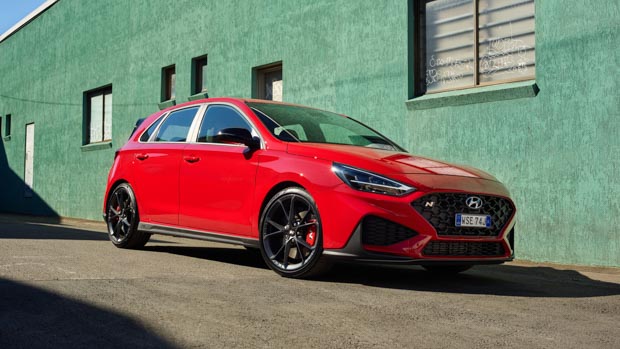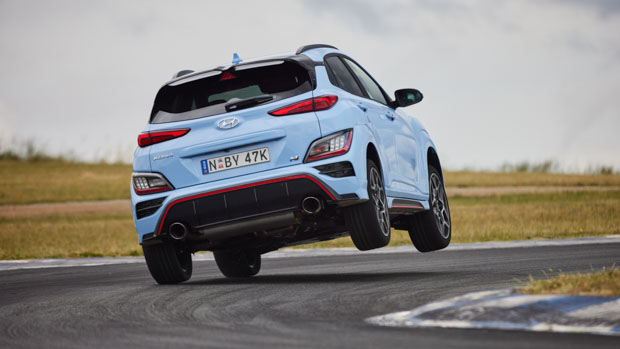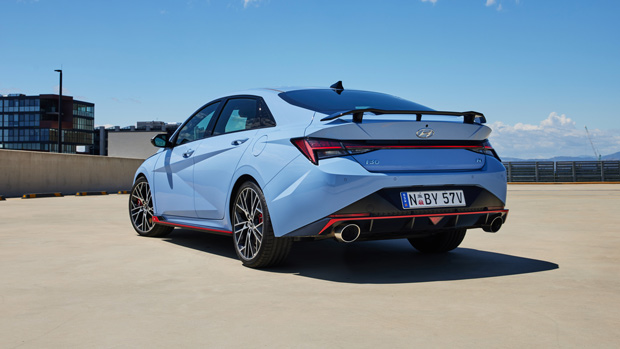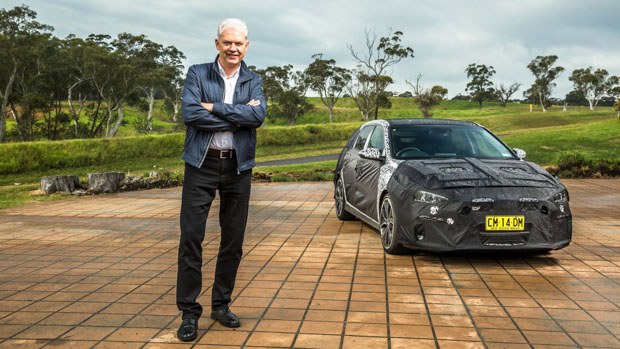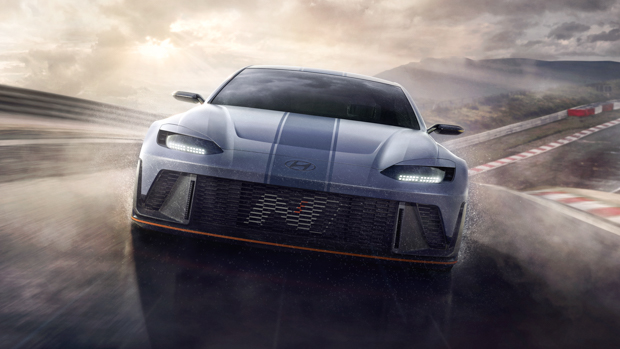-
Car Reviews
- All reviews
- Midsize SUVs
- Small cars
- Utes
- Small SUVs
- Large SUVs
- Large cars
- Sports SUVs
- Sports cars
- Vans
Latest reviews
- Car News
-
Car Comparisons
Latest comparisons
- Chasing Deals
“Nearly impossible” to keep selling petrol-powered N cars after new European laws bite, Hyundai N says – but one model will continue in Australia
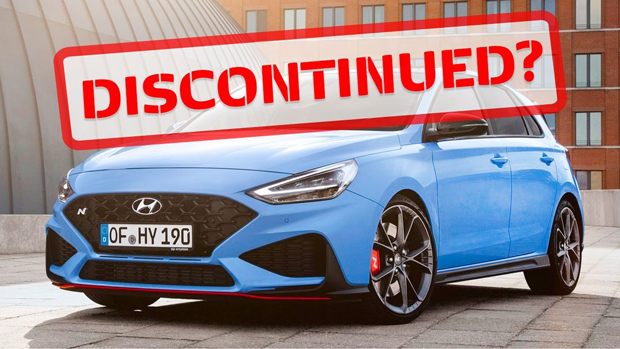
Even tougher European vehicle emissions limits that could commence in 2025 are likely to spell the end of the petrol-powered Hyundai i20 N and i30 N hot hatchbacks, plus the Kona N sports SUV, in the middle of the decade.
The proposed Euro 7 emissions limits presented to car makers by the European Union in recent months previews a much tougher testing regime that aims to further reduce automotive CO2 and NOX emissions, while introducing new tests for brake and tyre fragment pollution.
Read more about Hyundai’s future plans for its N cars in the electric age:
Europe’s toughened emissions regulations will mainly widen testing conditions to make achieving the existing 95g/km CO2 limit even harder. New cars must pass the tests in a wider temperature range of -10ºC to 45ºC and at higher altitudes, while remaining compliant for 10 years and 200,000km – up from five years/100,000km.
Many combustion-powered vehicles that cannot be turned into hybrids are likely to be caught afoul of the new laws, which are slated to come into force in 2025 but are the subjects of negotiations for a temporary delay until 2026 to 2028. The final settled date will be the death knell for at least three of Hyundai’s four current N models.
Australia is not subject to European Union emissions laws, but our status as a small market where just one million new cars are sold annually means that car makers rarely develop models exclusively for Australian consumption.
By contrast, six million new cars are sold each year in the EU, while 17 million new cars are sold to people in the United States annually. For Hyundai to justify expensive development of a new model, it needs to sell strongly in at least one of those markets.
All of Hyundai’s existing petrol-powered N-branded sports cars would likely require extensive re-engineering to make them compliant with Euro 7 standards. This engineering effort would significantly increase the price of the vehicles, hurting their competitiveness.
Even with today’s more lenient testing conditions, Hyundai’s petrol-fuelled N cars all greatly exceed Europe’s 95g/km CO2 limit. The i20 N, i30 N hatch and Kona N emit 157g/km, 199g/km and 206g/km of CO2 respectively – meaning Hyundai must sell thousands of EVs annually in Europe to offset its non-compliant N cars.
Till Wartenburg, Hyundai’s vice president of N brand management, said that incoming Euro 7 changes “make it almost impossible to go many more years with combustion engines,” but that the division is looking at ways in which it can keep the i20 N and i30 N hatch alive for as long as possible until it is no longer viable.
“We are thinking about how to prolong [i20 and i30 N] as long as we can. It always depends on the volume…and whether we actually have demand for that time period. We see that it is possible – but it has to be somewhat profitable,” he said.
Speaking with Chasing Cars, Hyundai N division executive technical adviser Albert Biermann shared his disappointment at the likely changes, but provided a nugget of good news to fans of petrol-powered N cars.
“The i30 N sedan, at least, can continue,” Biermann told Chasing Cars. “It’s kind of safe, quite safe, that we can have a next-generation i30 N sedan. When I checked, the other engine, everything fits in there without big drama. It’s in the long-range plan already.
“In Australia, we are in a good position [to continue selling a petrol-powered N car]. Other markets…might have no combustion car in future with Euro 7. And then, of course, some day they might wake up, and [wonder] where are the N cars?”
Biermann shared that Hyundai Motor Europe (HME) is not fighting for development of a next-generation, petrol-powered N car, and confirmed that the Kona N will not be renewed – at least in its current form.
“Hyundai Europe is in EV heaven,” he said. “They are so happy selling EVs, and they are not really fighting to get a [new] Kona with a combustion engine. It could have been possible until Euro 7 starts, to get a shade under four years of a new-generation Kona [N] with a combustion engine – but the EV heaven is just too charming.
“It is completely different to Australia. These guys [Hyundai Motor Company Australia] here know what matters, and they take every N car they can get. But in Europe, now, it’s a different story,” Biermann lamented.
Hyundai is concentrating heavily on transitioning its N brand to building fully-electric models. The 430kW, track-developed Ioniq 5 N electric crossover will be the brand’s first EV. Set for a global reveal in 2023, the Ioniq 5 N will be released in Australia in 2024 at a price of about $100,000.
In a separate story, we explain in detail the plan forming at Hyundai N division to renew the i20 N and i30 N hot hatches as fully-electric models in the future.
The release of those vehicles would likely occur after 2025, when Hyundai plans to begin replacing its first-generation 800-volt e-GMP EV architecture with a new 800-volt platform called ES.
Before then, N chief Wartenberg confirmed that the plan is to satisfy buyers seeking an affordable Hyundai N car with a petrol-powered model – which is probably the new-generation i30 Sedan N confirmed by Biermann.
The hope at Hyundai N is to continue selling at least one petrol-powered model in markets that allow it “until we have electrified high-performance cars from N which might be lower priced,” Wartenberg said.
Latest news
About Chasing cars
Chasing Cars reviews are 100% independent.
Because we are powered by Budget Direct Insurance, we don’t receive advertising or sales revenue from car manufacturers.
We’re truly independent – giving you Australia’s best car reviews.
